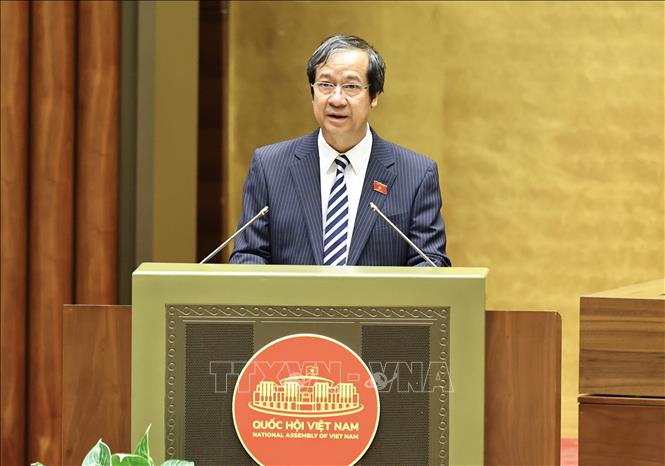
Minister of Education and Training Nguyen Kim Son presented the Proposal on 03 draft laws: Law amending and supplementing a number of articles of the Law on Education; Law on Higher Education (amended); Law on Vocational Education (amended). Photo: Minh Duc/VNA
Building an open Vietnamese education system
Presenting the Report on the draft Law amending and supplementing a number of articles of the Law on Education, Minister of Education and Training Nguyen Kim Son said that the promulgation of the Law aims to fully and promptly institutionalize the Party's new policies and guidelines, resolutions, conclusions and directives related to education development in the new context; concretize the provisions of the Constitution (amended and supplemented in 2025) and ensure consistency and synchronization with the relevant legal system.
In addition, overcome the shortcomings and bottlenecks of the current Education Law; continue to perfect the legal corridor for building an open, practical, practical Vietnamese education system, good teaching, good learning, good management; have a reasonable educational structure and method, associated with building a learning society; international integration; maintain socialist orientation and national identity; improve the effectiveness of education system governance, promote decentralization, delegation of power, increase autonomy and accountability of educational institutions.
Notably, the promulgation of the Law aims to ensure the abolition of at least 30% of unnecessary business investment conditions, 30% of administrative procedure compliance costs, creating convenience for people, organizations and educational institutions; at the same time, ensuring fairness and equality in access to education among target groups and types of educational institutions in accessing and implementing administrative procedures in the education sector; at the same time, contributing to the development of high-quality human resources, meeting the requirements of digital transformation, international integration and sustainable development of the country.
The draft Law does not specify administrative procedures in detail; instead, the provisions are mainly framework, policy orientation, establishing a legal basis for the Government and the Minister of Education and Training to specify in detail according to their authority. However, the amended and supplemented provisions in the draft Law still have a direct impact on the amendment, supplementation and replacement of many current administrative procedures being implemented under the 2019 Law on Education. According to the results of the review and assessment, out of a total of 126 current administrative procedures affected by the 2019 Law on Education, there are 69 administrative procedures expected to be affected by the amended and supplemented contents in the draft Law, mainly according to the following groups of fields: Diplomas, certificates; establishment/permission to establish, permission to operate education, division, separation, merger, dissolution of educational institutions; education quality assessment; enrollment, exams, textbook appraisal...
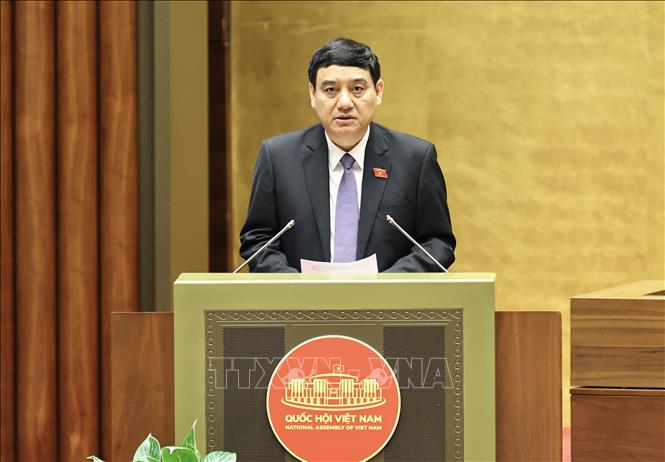
Chairman of the National Assembly's Committee for Culture and Society Nguyen Dac Vinh presents the Verification Report on the draft laws for amendments. Photo: Minh Duc/VNA
Regarding the draft Law on Higher Education (amended), Mr. Nguyen Dac Vinh said that the promulgation of the Law aims to fully institutionalize the policies and guidelines of the Party and State on strategic breakthroughs and modernization of higher education; develop higher education into an important driving force in the national innovation system, a center for training high-quality human resources, a pioneer in scientific and technological activities and international integration.
At the same time, remove bottlenecks and shortcomings in the implementation of the current Law; supplement and perfect the system of legal regulations on higher education in a complete, synchronous and unified direction; improve the effectiveness and efficiency of state management; build and perfect an advanced university governance model, suitable to the political, cultural and human conditions of Vietnam. Train elites and provide high-quality training to raise Vietnamese intelligence; provide mass training to improve people's knowledge, meet human resource needs and promote endogenous strength; establish a system of scientific and technological organizations in higher education institutions to carry out the mission of developing high-quality human resources associated with scientific research, technology and innovation...
The Draft Law consists of 9 chapters and 46 articles; with breakthroughs compared to the current Law, including: Positioning the pioneering role of higher education, creating policies for higher education institutions to make breakthroughs, leading in innovation; elite training, high-quality training and providing highly qualified human resources to serve the development of the country and humanity; affirming autonomy as a legal right, increasing the initiative associated with accountability of higher education institutions.
At the same time, create breakthroughs in governance and state management methods, perfect the governance model at each higher education institution in a modern and professional direction; shift state management from pre-control to post-control, apply digital technology and quality standards to manage the entire system; expand and diversify resources and ensure fairness among subjects participating in higher education activities; create breakthrough policy mechanisms to mobilize all resources, create a development environment, and an equal competitive playing field between public and private sectors.
Regarding the Law on Vocational Education (amended), Mr. Nguyen Dac Vinh said that the development of the Law aims to perfect the legal corridor, ensure the formation of a synchronous and unified legal system on vocational education, suitable to the new development context of the country and the requirements of international integration, thereby improving the quality of vocational education, contributing significantly to improving the quality of human resources, especially human resources with high vocational skills, and implementing well the three strategic breakthroughs set forth by the Resolution of the 13th National Party Congress.
Specifically, the legalization of the Law's policies has been approved by the Government to institutionalize the Party and State's policies and guidelines on vocational education; create synchronization and unity in the legal system to create strong changes in the quality and effectiveness of vocational education to meet the needs of learners and the labor market; requirements on professional qualifications and skills in the ASEAN region and international integration; be able to meet the human resource requirements for national development in the new era. Overcome the shortcomings and limitations of the law and the implementation of current laws on vocational education; promptly remove obstacles and difficulties, solve "bottlenecks" in practice to innovate and improve the quality of vocational education.
At the same time, ensure the abolition of at least 30% of unnecessary business investment conditions, 30% of administrative procedure compliance costs, facilitate people, organizations, and educational institutions in accessing and implementing administrative procedures in the field of vocational education; promote decentralization, delegation of power, improve the efficiency of education system administration...
Improve the efficiency of student streaming
Presenting the Review Report on the draft Law amending and supplementing a number of articles of the Law on Education, Chairman of the National Assembly's Committee on Culture and Society Nguyen Dac Vinh stated that the Committee agrees with the completion of the national education system in the direction of increasing the connection between general education and vocational training. The addition of the vocational secondary school model comes from practical requirements to create conditions for students after lower secondary school to have more options, both to continue studying the general secondary school program and to learn vocational skills, contributing to improving the effectiveness of student streaming.
However, the drafting agency clearly defines the position of vocational secondary schools in the national education system and in the 8 levels of the national qualification framework; the basis for vocational secondary schools is the level equivalent to high school; and clarifies the criteria and output standards of vocational secondary schools.
Agreeing with the removal of the regulation on granting junior high school diplomas, only regulating the confirmation of secondary school transcripts completed by the junior high school principal, the National Assembly's Committee on Culture and Society proposed clarifying the standards and methods for granting vocational secondary school diplomas to confirm the basis for determining equivalence with high school diplomas; supplementing and clarifying the principles and mechanisms for management, sharing and data security; and studying regulations on appraisal and recognition of other certificates used in the national education system.
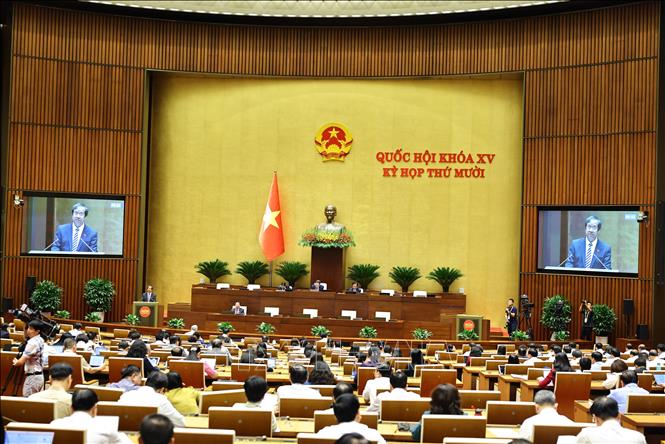
Scene of the meeting on the morning of October 22. Photo: Minh Duc/VNA
The National Assembly's Committee on Culture and Society agrees with the regulation that the State provides a set of textbooks for unified use nationwide, in order to institutionalize the Party's policy on general education textbooks. Regarding local educational materials, the Committee agrees with the regulation in the direction of assigning the authority to organize compilation to specialized agencies under the provincial People's Committee, the provincial appraisal council to appraise, and transferring the authority to approve local educational materials to the Chairman of the provincial People's Committee to ensure the initiative of localities...
Regarding the draft Law on Higher Education (amended), Mr. Nguyen Dac Vinh stated that the Committee agrees with the provisions on the State policy for developing higher education; however, it is necessary to clarify the leading role of the State budget in investing in higher education, including policies for public and non-public higher education.
Agreeing with the regulations on the organization and administration of higher education institutions, the National Assembly's Committee on Culture and Society proposed that the Government issue a separate document guiding university autonomy; clearly specify the level of autonomy based on administrative capacity, accredited educational quality and financial capacity of higher education institutions. Clearly specify the authority and responsibility of relevant parties in supervising the operation of higher education institutions when terminating the operation of the school council in public schools; clarify the role, position and function of some units in the organizational structure of higher education institutions such as affiliated schools, branches, production facilities, scientific and training councils.
The National Assembly's Committee on Culture and Society proposed to supplement regulations to create a mechanism to promote links between schools, businesses and the State; clarify the content, order and procedures for valuation, establishing ownership rights, exploiting and dividing benefits from intellectual property, research results and technology transfer.
Regarding financial and property regulations, the draft Law has not yet defined the financial mechanism for public and private higher education institutions; regulations on the training ordering mechanism are unclear; it is proposed to study the assignment of public higher education institutions to decide on the management and use of legal revenue sources outside the state budget for development investment expenditure tasks...
Regarding the four principles of vocational education activities in the draft Law on Vocational Education (amended), there are opinions suggesting that the drafting agency consider and study some more principles: Ensuring close connection between labor supply and demand and vocational education; digital transformation, application of digital technology in vocational education activities.
The Chairman of the National Assembly's Committee on Culture and Society proposed to determine the position of vocational secondary education in the system of levels/qualifications of the Vietnam National Qualifications Framework; clarify regulations on integration between core knowledge of the high school program and vocational expertise in the vocational secondary education program; regulate input standards, training time, and output standards of intermediate and vocational secondary education programs to facilitate streaming and connection with higher levels and vocational secondary school graduation exams.
The participation of enterprises in vocational education activities needs to be regulated more specifically, especially regarding financial support and tax deductions; clearly defining the coordination mechanism, dividing the rights and responsibilities between vocational education institutions and enterprises in developing programs, curricula and organizing training; supplementing regulations on the responsibilities of enterprises in retraining and improving vocational skills for workers.
Regarding cooperation and investment in vocational education, some opinions say that the draft Law has not clarified the criteria for State support for public and private vocational education institutions; the budget allocation mechanism is based on the method of "ordering, quality index, regional factors"; there is a lack of a mechanism to monitor the use of non-budgetary capital...
Source: https://baotintuc.vn/thoi-su/hoan-thien-he-thong-phap-luatxay-dung-nen-giao-duc-viet-nam-mo-thuc-hoc-thuc-nghiep-20251022093219386.htm








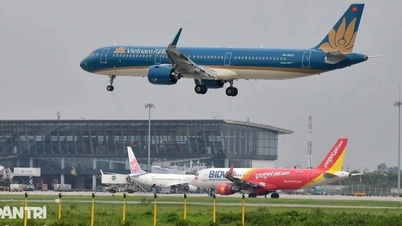

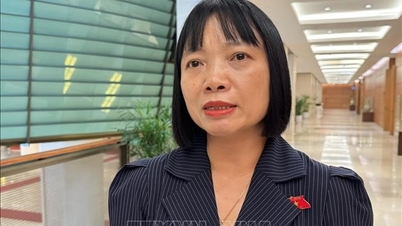
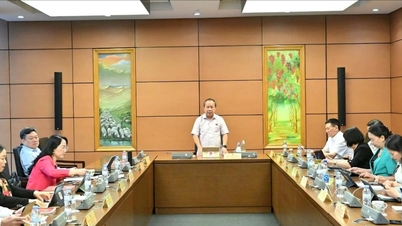

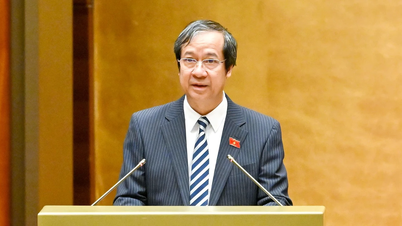

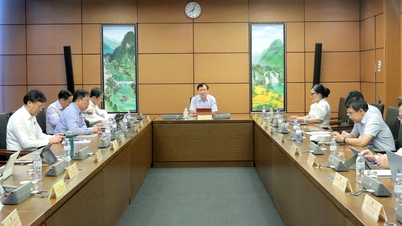

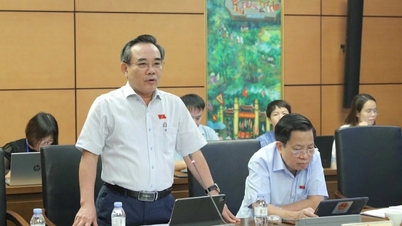
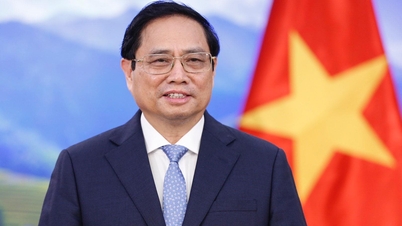


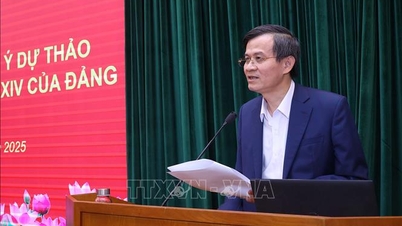
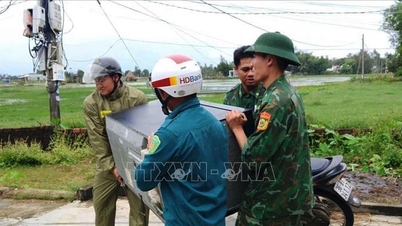

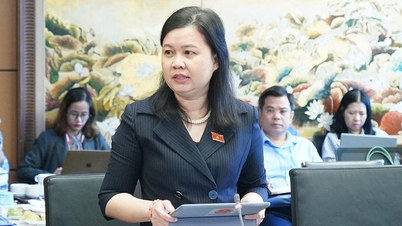





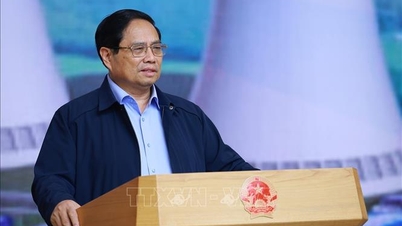
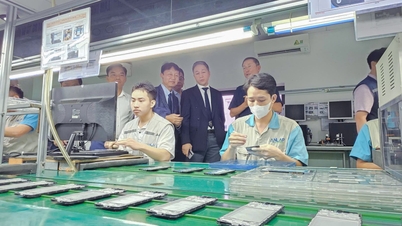

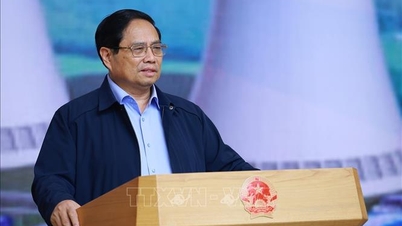

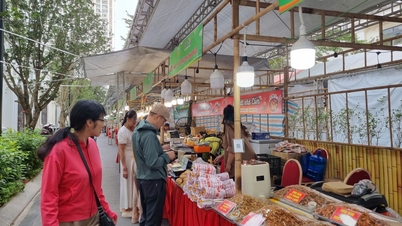
![[Photo] Da Nang residents "hunt for photos" of big waves at the mouth of the Han River](https://vphoto.vietnam.vn/thumb/1200x675/vietnam/resource/IMAGE/2025/10/21/1761043632309_ndo_br_11-jpg.webp)

![[Photo] Prime Minister Pham Minh Chinh received Mr. Yamamoto Ichita, Governor of Gunma Province (Japan)](https://vphoto.vietnam.vn/thumb/1200x675/vietnam/resource/IMAGE/2025/10/21/1761032833411_dsc-8867-jpg.webp)



























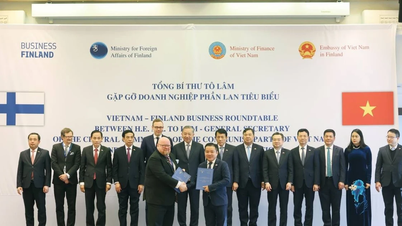









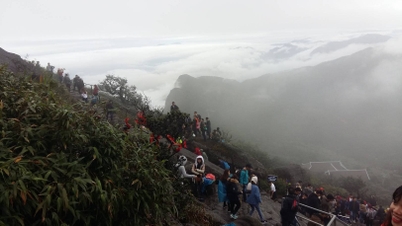

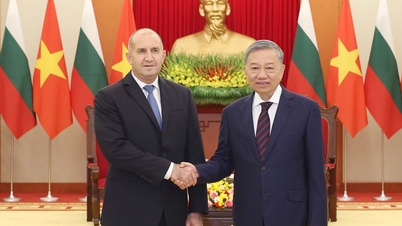
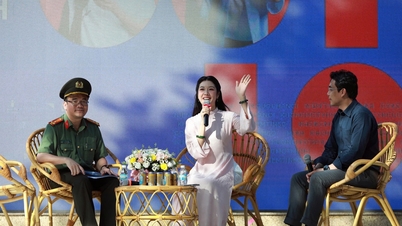

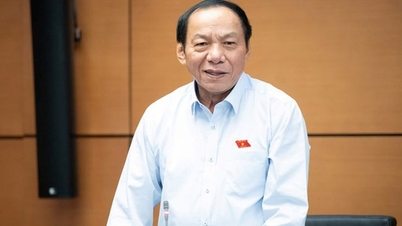

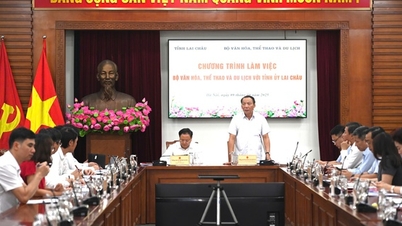
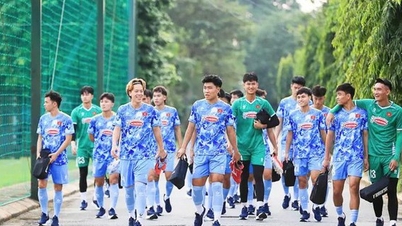

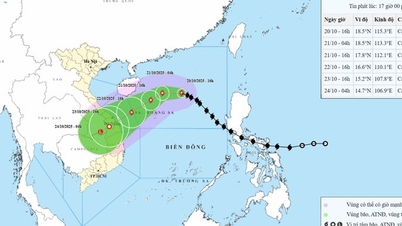
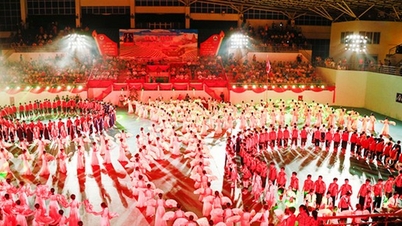
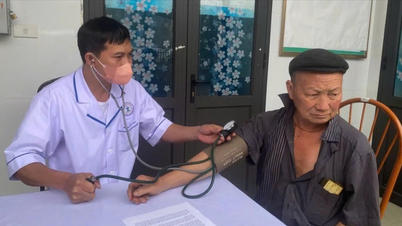



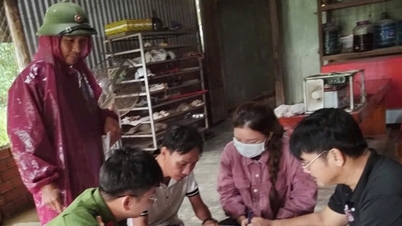


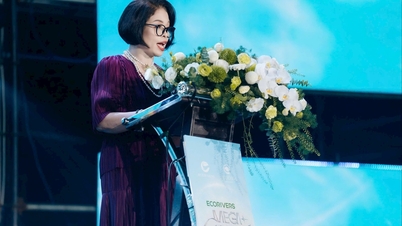

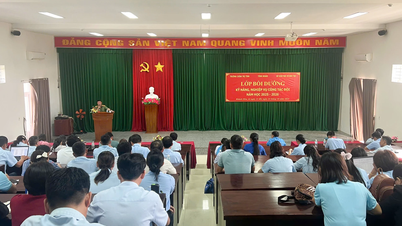












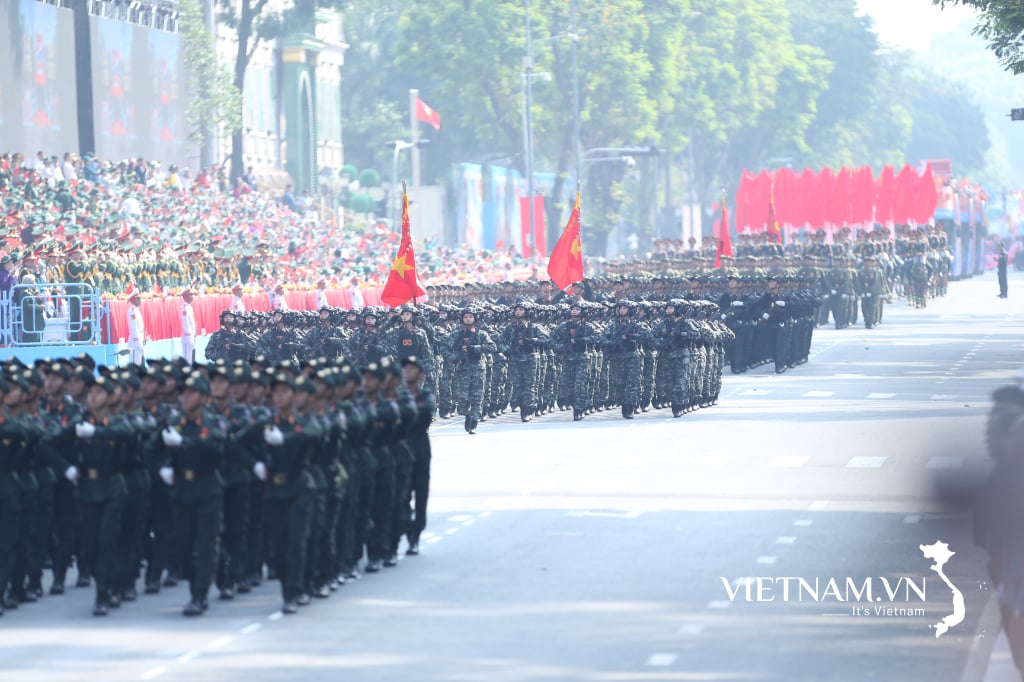



Comment (0)